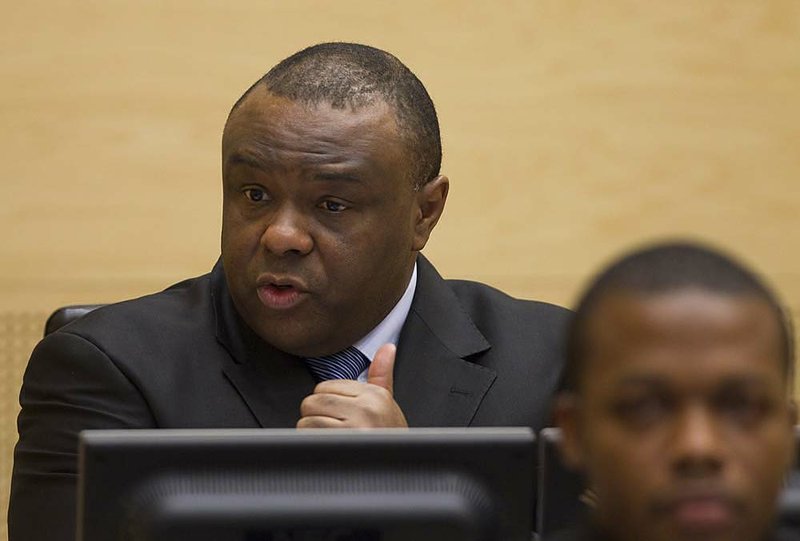THE HAGUE, Netherlands — The Democratic Republic of Congo’s former Vice President Jean-Pierre Bemba pleaded innocent Monday to charges that he gave his private army free rein to sexually assault and murder men, women and children in neighboring Central African Republic.
Prosecutors said the trial will set new legal benchmarks for a commander’s responsibility for atrocities by his forces.
“The International Criminal Court’s decision will influence the behavior of thousands of military commanders” around the world, prosecutor Luis Moreno Ocampo told the three-judge panel.
Bemba, 48, is the most senior political figure to appear before the court since it began functioning in 2002. He had been considered a potential presidential candidate in Congo’s next election.
Wearing a dark gray suit and blue tie, Bemba sat impassively with his arms crossed in front of him as his lawyer pleaded innocent to charges of rape, murder and pillage.
The first witness was expected to testify today. The trial was expected to last at least one year.
Prosecutors say Bemba allowed 1,500 members of his personal militia, the Movement for the Liberation of Congo, to run amok in Central African Republic in 2002 and 2003 after the country’s then-president, Ange-Feliz Patasse, asked for its help in an ultimately unsuccessful fight against rebels led by Congo’s former army chief of staff, Francois Bozize.
Moreno Ocampo said gangs of Bemba’s troops systematically invaded homes to terrorize civilians, aiming to prevent them joining the rebellion.
“They stole all possessions that could be carried off and raped women, girls, elders regardless of their age. If the civilians resisted the rape or pillaging, they were killed,” he said.
The sex attacks “were crimes of domination and humiliation” targeting women and men in positions of power, he added.
Moreno Ocampo said Bemba did not explicitly order the atrocities but deliberately turned a blind eye to them, giving troops “license to attack civilians.”
“As superior, Jean-Pierre Bemba is even more responsible than his subordinates,” Moreno Ocampo said. “A commander who lets his troops carry out such criminal tactics is hundreds of times more dangerous than any single rapist.”
Margot Wallstrom, the U.N. special representative for sexual violence in conflict, said the trial would help shatter the silence that surrounds mass rape used as a weapon, which she said is normally met with “mass impunity.”
“It is not that wartime rape is new,” Wallstrom told reporters at the courthouse. “What is new is the willingness of the international community to address it, not as random acts of a few renegade soldiers but as a calculated crime.”
Prosecutors plan to call up to 40 witnesses, including a dozen rape victims.
Bemba’s lawyers insist he is innocent and that he tried to investigate and prosecute officers responsible for the atrocities. Moreno Ocampo dismissed those efforts as “sham trials” that convicted soldiers of petty theft and meted out no punishments.
One of Bemba’s lawyers, Aime Kilolo, said his client was “very serene” on the eve of the trial.
“He will show that at no time could he be associated with allowing rapes or murders,” Kilolo said. “Nor was he associated with men in the field, nor did he have effective control of troops, nor was he responsible for discipline.”
Bemba’s lead lawyer, Nkwebe Liriss, said the court had frozen Bemba’s assets and not provided his defense team with enough money to carry out any investigations.
But he said prosecutors also had conducted “a botched investigation which ... doesn’t provide the judges evidence beyond any reasonable doubt.”
Liriss said Central African Republic army commanders should be on trial, not Bemba.
Marie Edith Douzima-Lawson, a lawyer representing hundreds of victims, said the start of the trial was a triumph for survivors of rape who feared they would never get justice.
Bemba ruled a large part of Congo during that country’s 1998-2002 war with support from neighboring Uganda. After a peace agreement ended the war, he became one of Congo’s four vice presidents.
Front Section, Pages 8 on 11/23/2010
